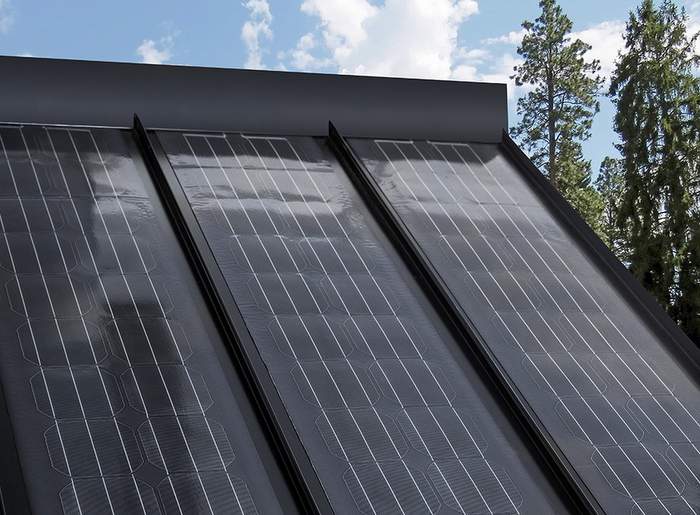
A new study commissioned by thin-film solar provider Midsummer shows that its proprietary flexible CIGS thin film solar module manufacturing process might be more environmentally friendly than other solar module production processes.
The recent study by Swerea IVF, a Swedish industrial research institute, claims that Midsummer’s rapid sputtering production process for thin film solar modules can result in a global warming potential (GWP) that’s one-tenth that of the silicon modules.
Midsummer´s flexible CIGS solar modules do not consist of any glass or aluminium materials, reducing material consumption significantly. One reason for the low carbon footprint is the extremely thin light absorbing CIGS layer. Midsummer uses less than 1um (one micrometer, 0.001 mm) of CIGS materials in its production process and this enables not only a fast production process, but also low energy consumption.
The objective of Swerea IVF’s Life Cycle Assessment (LCA) study was to understand the environmental impact of Midsummer’s production method for flexible CIGS solar module in a life cycle perspective. The results showed much lower CO2 emission compared not only with similar modules made of silicon but also with other thin film technologies.
The study has been reviewed and approved by a Swedish independent third-party institute; Miljögiraff AB.
— Solar Builder magazine

Leave a Reply
You must be logged in to post a comment.